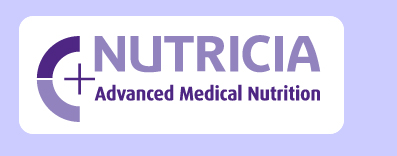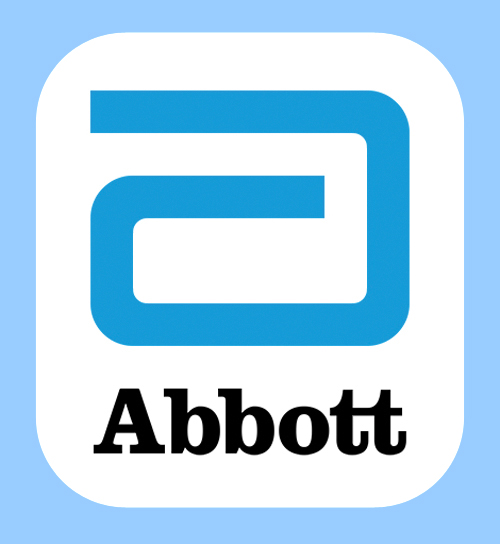
BAPEN’s 2017 Malnutrition Matters Conference will focus on Providing Quality Nutritional Care
Tuesday 21st & Wednesday 22nd November 2017, Hilton Birmingham Metropole NEC
Pre-conference Teaching Days will take place on Monday 20th November 2017
BAPEN CONFERENCE PROGRAMME Tuesday 21st November 2017 |
|
| 08:30 – 09:30 | Registration & Exhibition |
| 09:30 – 11:00 | Opening Symposium |
This year’s opening symposium will get straight down to business! Following a brief summary of BAPEN news from President Dr Simon Gabe, Dr Ailsa Brotherton will update us on the Nutrition Care Tool that has the ability to tell us how effective treatment of malnutrition is in our own institutions. This year is BAPEN’s 25th Birthday and Mike Wallace, Stategic Affairs Director, will give us an astonishing insight into the potential cost of malnutrition over the next 25 years. Finally, you will get the chance to be one of the first people to hear the stunning results of the National Audit of Small Bowel Obstruction (NASBO) which have major implications for healthcare professionals working in nutrition support. |
|
| 09:30 – 09:40 | BAPEN News and Conference Highlights |
| 09:40 – 09:55 | BAPEN Nutrition Care Tool – Early learning from the data |
| 09:55 – 10:15 | The Cost of Malnutrition – Predictions for the next 25 years |
| 10:15 – 11:00 | Results of the National Audit of Small Bowel Obstruction (NASBO) |
| 11:00 – 11:30 | Coffee & Exhibition |
| 11:30 – 13:00 | Symposium 1: Estimating Nutritional Requirements – When is less more? |
A look at the controversies surrounding the estimation of nutritional requirements from the use and abuse of stress factors to recommendations in specific conditions such as critical illness. Featuring debates and an expert panel, we will focus on the limitations of predictive formulae and look at what we can actually achieve in practice. |
|
| Chair | Bruno Mafrici, Clinical Lead Renal Dietitian, Nottingham University Hospitals NHS Trust |
| 11:30 – 11:40 | Update on the PENG Pocket Guide to Clinical Nutrition |
| 11:40 – 12:00 | The New PENG Pocket Guide – Taking the stress out of estimating requirements |
| 12:00 – 12:40 | Debate: Complex Predictive Formulae are Superior to Kcal/kg in Estimating the Energy Requirements of Critically Ill Adults |
| 12:40 – 13:00 | Ask the Experts – Your chance to put questions on nutritional requirements to the panel |
| 11:30 – 13:00 | Symposium 2: Management of Enterocutaneous Fistulae |
This symposium will focus on a case based journey entitled ‘The Management of Enterocutaneous Fistulae’ lead by an expert panel of healthcare professionals from a variety of centres, including gastroenterology, colorectal surgery, health psychology, specialist nursing and dietetics. This interactive symposium welcomes questions and comments throughout the symposium and it aims to focus on a variety of commonly encountered problems in fistulae management and to aid in your future practice. |
|
| Chairs | Dr Sheldon Cooper, Consultant Gastroenterologist, Queen Elizabeth Hospital, University Hospitals of Birmingham & Amrit Dhaliwal, Specialist Registrar, BAPEN medical trainee committee Vice Chair, Queen Elizabeth Hospital, University Hospitals of Birmingham |
Case: The undulating path of fisulating disease |
| 12:50 – 13:00 | Peri-operative Fluid Administration in Patients Undergoing Elective Colorectal Segmental Resection (OC1) |
| 11:30 – 13:00 | Symposium 3: Restraints – securing devices used in delivering nutrition support |
The symposium will look at ‘Securing devices’ used to secure feeding tubes used in delivering Nutritional Support.: an overview of the products available on the market, how and when to use these products and their implications on Consent, Mental Capacity Act (MCA) and Deprivation of Liberty Safeguards (DoLs). |
|
| Chair | Barbara Dovaston, Clinical Nurse Specialist – Nutrition, Heart of England NHS Foundation Trust |
| 11:30 – 11:55 | Mental Capacity Act |
| 11:55 – 12:20 | Preventing Nasogastric Tube Removal – An audit of different methods |
| 12:20 – 12:50 | Palliative Feeding for Comfort |
| 12:50 – 13:00 | A Regional Percutaneous Endoscopic Gastrostomy (PEG) Audit Exploring Factors Influencing Mortality and Complications (OC2) |
| 13:00 – 14:00 | Lunch & Exhibition |
| 14:00 – 14:30 | Chaired Poster Sessions |
| 14:30 – 16:00 | Symposium 4: Addressing Malnutrition in the Community |
With 93% of the malnutrition existing in the community, where it develops insidiously and patients spending on average less than 7 days in hospital, it is vital that community healthcare professionals integrate nutritional care including malnutrition screening into practice. Join us in this session to gain insights into malnutrition in the community through the lens of GPs and commissioners. Through a facilitated panel discussion, you will also have the opportunity to pose your questions to the panel and ensure your take-away messages and actions enable you to make a difference. |
|
| Chair | Anne Holdoway, Consultant Dietitian, Bath |
| 14:30 – 14:40 | Implementation of the Malnutrition Pathway in the Community – Research into practice |
| 14:40 – 14:50 | A National Survey of GPs to Assess the Understanding and Priority Given to Malnutrition in Patients with COPD (OC3) |
| 14:50 – 15:15 | Waking up GPs to Malnutrition |
| 15:15 – 15:40 | Putting Community Malnutrition Commissioning Guidance into practice – Barriers and opportunities |
| 15:40 – 16:00 | Panel Discussion |
| 14:30 – 16:00 | Symposium 5: Integration of Health and Social Care – The implications for nutrition professionals |
The four different countries in the UK have separate health systems but often a change or initiative in one country leads to changes or initiatives elsewhere - we can learn from one another. One of the main changes in healthcare in recent times has been the integration of health and social care. Each country has tackled this somewhat differently and this symposium addresses this topic with the aim of mutual learning and improvement. |
|
| Chair | Dr Ruth McKee, Consultant Colorectal Surgeon, Glasgow Royal Infirmary |
| 14:30 – 14:50 | Integrating Care – Forming the strategy |
| 14:50 – 15:10 | Salford Malnutrition Task Force – Breaking down organisational boundaries |
| 15:10 – 15:30 | A Patient Centred Collaborative MDT Pre Assessment Elective Gastrostomy Tube Placement Service |
| 15:30 – 15:50 | Tayside Nutrition Network |
| 15:50 – 16:00 | Nutritional and Financial Impact of an Enhanced Dietetic Service to Care Homes within a Welsh Health Board (OC4) |
| 14:30 – 16:00 | Symposium 6: Organisational Change in the NHS and its Impact on Parenteral Nutrition |
Are organisational changes in the NHS moving us towards greater use of standardised approaches to parenteral nutrition? Are these changes a backwards step or just plain common-sense? Will cost pressures signal the decline of ‘bespoke’ nutrition and a renaissance of the humble ‘off the shelf’ multichamber bag? This symposium considers these questions for both adult and neonatal nutrition. |
|
Chair |
Tony Murphy, Pharmacy Production Manager, University College London Hospitals |
| 14:30 – 14:55 | Organisational Change in the NHS and its Impact on the Provision of Hospital Pharmacy Aseptic Services |
| 14:55 – 15:20 | Implementing Standardised Neonatal PN Across a Network and Managing the Provision Without ‘On-site’ Pharmacy Aseptic Services |
| 15:20 – 15:45 | Is the squeeze on NHS resources and commercial capacity pushing us towards greater use of standard PN for adult inpatients? |
| 15:45 – 15:55 | Micronutrient Deficiencies are Difficult to Predict in Patients on Home Parenteral Nutrition (OC5) |
| 16:00 – 16:30 | Tea & Exhibition |
| 16:30 – 17:10 | BAPEN Pennington Lecture: Nutrition – making a difference |
17:10 – 17:30 |
BAPEN 2017 Recognition & Awards |
| 17:30 | Poster Reception |
| 19:30 |  BAPEN Annual Dinner
BAPEN Annual Dinner Hilton Birmingham Metropole. For further details on the annual dinner click here. |
BAPEN CONFERENCE PROGRAMME Wednesday 22nd November 2017 |
|
07:00 – 08:30 |

Breakfast Symposium: Optimising the Management of Disease-related Malnutrition Chair’s Introduction
Bolus Feeding in Adults
The Role of the Prescribing Support Dietitian in the Management of Malnutrition in the Community
|
| 08:30 – 09:00 | Registration & Exhibition |
| 09:00 – 11:30 | Symposium 7: Death by Chocolate – The refeeding syndrome revisited |
Refeeding syndrome is something everyone working in nutrition support will encounter but is it always possible to follow the multitude guidelines to the letter? In ‘Death by Chocolate – The refeeding syndrome revisited’ a panel of BAPEN experts will be put on the spot by Pete Turner and asked how they would deal with oral, enteral and parental feeding in patents at high risk – with a few ‘quite interesting’ facts and fallacies thrown in along the way! |
|
Chair |
Pete Turner, Clinical Lead Nutrition Support Dietitian, Ulster Hospital, Northern Ireland Expert Panel: Dr Alison Culkin (Dietitian); Prof. Mike Stroud (Gastroenterologist); Dr Callum Livingstone (Chemical Pathologist); Rebecca White (Pharmacist); Anna Hardman (Specialist Community Dietitian) |
| 09:00 – 10:30 | Symposium 8: Feed at Swallowing Risk – modified textures |
This symposium focuses on the complex subject of feeding the dysphagic patient with a look at investigations and their interpretation, the controversy surrounding modified texture diets and the impact they have on people’s lives. It is a must for dietitians, speech and language therapists as well as any healthcare professionals working in this difficult area. |
|
Chairs |
Dr Andrew Rochford, Consultant Gastroenterologist, Barts Health NHS Trust & Winnie Magambo-Gasana, Advanced Nurse Practitioner, Oxford Radcliffe Hospitals NHS Trust |
| 09:00 – 09:30 | Assisted Methods of Feeding |
| 09:30 – 09:55 | International Dysphagia Diet Standardisation Initiative (IDDSI) |
| 09:55 – 10:20 | Dysphagia Case Scenario |
| 10:20 – 10:30 | Right Meal, Right Patient, First Time (OC6) |
| 09:00 – 10:30 | Symposium 9: Catheter-related Sepsis |
The Catheter-related Sepsis (CRS) symposium aims to show delegates how to diagnose CRS, show which organisms cause it and from where they originate. It will discuss when and how to perform catheter salvage. |
|
Chairs |
Dr Jeremy Nightingale, Consultant Gastroenterologist, St Mark's Hospital, Harrow & Alison Young, Nurse Consultant in Nutrition, Royal Liverpool and Broadgreen University Hospitals NHS Trust |
| 09:00 – 09:10 | Factors that Affect Survival in Type 3 Intestinal Failure: The largest single centre experience of 978 patients over 37 years (OC7) |
| 09:10 – 09:20 | What is it and how is it detected? |
| 09:20 – 09:45 | Why do infections occur and with what organisms? |
| 09:45 – 10:30 | Discussion/Debate: Infected long-term HPN catheters with staph aureus or candida should be removed? |
| 10:30 – 11:00 | Coffee & Exhibition |
| 11:00 – 12:30 | Symposium 10: Nutrition and Dementia |
This symposium will tackle another controversial and highly emotive topic – nutrition and dementia. It will look at the clinical manifestations of the disease with respect nutrition and investigate practical ways to meet the challenges of feeding the affected. |
|
Chairs |
Dr Andrew Rochford, Consultant Gastroenterologist, Barts Health NHS Trust & Winnie Magambo-Gasana, Advanced Nurse Practitioner, Oxford Radcliffe Hospitals NHS Trust |
| 11:00 – 11:30 | Ethics in Feeding in Dementia Patients |
| 11:30 – 12:00 | The Challenges of Nutrition in Dementia |
| 12:00 – 12:30 |
Use of ONS in Patients with Dementia |
| 11:00 – 12:30 | 
Satellite Symposium: The Healthcare Environment is Changing – What is your role? The content of the session will cover updating the HCPs on the current healthcare and prescribing environment, informing HCPs on how the healthcare environment is changing and who they need to engage with to ensure their professional voice is heard and practical hints and tips for compelling communication to influence colleagues. |
| Chair | Anne Holdoway, Consultant Dietitian, Bath |
| 11:00 – 11:15 | The Current Healthcare Environment |
| 11:15 – 11:45 | The Future Healthcare Environment and the Key Players |
| 11:45 – 12:15 | A Practical Guide to Influencing Stakeholders |
| 12:15 – 12:30 | Q&A Session |
| 11:00 – 12:30 | Symposium 12: IF Hot Topics and Case |
The Hot Topics symposium will teach about EDS hypermobility and its relationship to nutritional problems. This will be highlighted in the case presentation. The ways in which neonatal liver disease has been reduced will be discussed with the implications for managing adult patients. |
|
| 11:00 – 11:25 | EDS Hypermobility and the Gut |
| 11:25 – 11:50 | Neonatal PN-related Liver Disease – Lessons for adult practice |
| 11:50 – 12:20 | Case |
| 12:20 – 12:30 | Review of Tea Drinking Habits in Short Bowel Patients with Jejuno-colic Anatomy in Northern Ireland (OC8) |
| 12:30 – 13:30 | Lunch & Exhibition |
| 13:30 – 14:00 | Chaired Poster Sessions |
| 13:30 – 14:00 | NG SIG Meeting – Dukes Suite |
| 14:00 – 15:00 | BAPEN Keynote Lecture - 'Human Microbiome in Health and Disease' Original Communication and Poster Prize Presentations |
| 15:00 – 16:00 | Symposium 13: Rehabilitation After Serious Illness – From community to the hospital and back… where |
 Continuing on the theme of tackling malnutrition in the community, BAPEN Medical dedicates its second symposium to another hot topic. Acute severe illness has become an increasing social and economic burden within last decades, as mortality has constantly decreased and more patients survive to hospital discharge. Unfortunately, the more severe the acute disease and the comorbidities the patient has at hospital admission, the longer and more difficult the rehabilitation, which could take up to one or more years. This long and sinuous road will be explored (focusing on nutritional aspects of rehabilitation) by a multidisciplinary panel of experts, including Prof. Paul Wischmeyer (US), who will share his experience from both sides of the net: doctor and patient. |
|
| Chair | Irina Grecu, Consultant in ICM & Anaesthesia, Hampshire Hospitals Foundation Trust |
| 15:00 – 15:10 | Can dietitians contribute to reducing inpatient days among frail elderly people? A retrospective review of readmissions, length of stay and the impact of differences in anthropometry (OC9) |
| 15:10 – 15:35 | The Role of Targeted Nutrition and Exercise in Recovery from Illness |
| 15:35 – 16:00 | Nutritional Challenges in the Recovery Phase of Critical Illness |
Pre-BAPEN Conference Teaching Days – Monday 20th November 2017
BAPEN Medical join forces with BIFA and BSPGHAN and have organised a Teaching day that will focus on Intestinal Failure in both adult and paediatric patients. Click here for further details.
PENG are holding Pre-Conference Teaching Day for dietitians, discussing 'Innovative and Emerging Practices in Dietetics'. Click here for further details.
For further details and to register for the BAPEN Conference,
click here.
The BAPEN Annual Conference is a multi-disciplinary event organised by representation from each of the following organisations:

